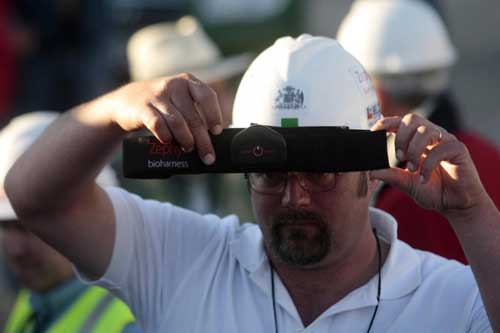Chile choreographs dramatic finish to rescue saga
Several of Urzua's relatives said that he was last on the list, speaking on condition of anonymity to avoid upsetting government officials.
"He's a very good guy -- he keeps everybody's spirits up and is so responsible -- he's going to see this through to the end," said his neighbor Angelica Vicencio, who has led a nightly vigil outside the Urzua home in Copiapo.
The government has promised that its care of the miners won't end for six months at least -- not until they can be sure that each miner has readjusted.
"We learned something in medicine, that our job is to provide benefit and not harm," Manalich said. "We have to protect them until the last minute, until they can return to normal lives with their families."
Psychiatrists and other experts in surviving extreme situations predict their lives will be anything but normal, and that both the miners and their families have been forever changed by this experience.
Since Aug 22, when a narrow bore hole broke through to their refuge and the miners stunned the world with a note, scrawled in red pen, that announced their survival, these families' lives have been exposed in ways they never imagined. Miners had to describe their physical and mental health in minute detail with teams of doctors and psychologists. And in some cases, when both wives and lovers claimed the same man, everyone involved had to face the consequences.
By the time of the rescue, nerves were beyond frayed outside the mine in "Camp Hope," where miners' families and reporters from all over the world slept side by side in tents and campers, enduring the baking days and frigid nights of the desolate Atacama desert.
"Here the tension is higher than down below. Down there they are calm," said Veronica Ticona, sister of 29-year-old Ariel Ticona, a trapped rubble-removal machine operator.
Alberto Iturra, chief of the psychology team, told the families to go home, get some rest, and prepare to reunite in several days.
"I explained to the families that the only way one can receive someone is to first be home to open the door," Iturra said.
 0
0 








Go to Forum >>0 Comments